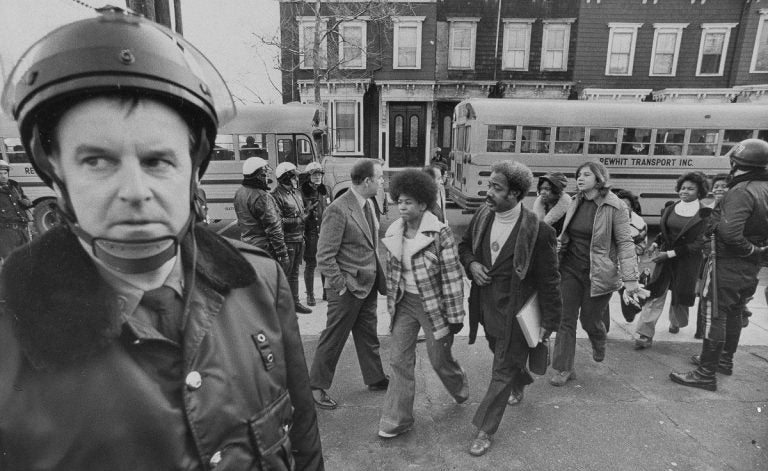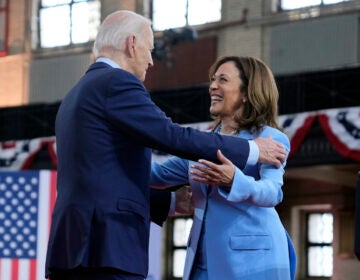The legacy of busing
We discuss Vice President Joe Biden's record on busing and desegregation in schools and whether the policy has achieved racial integration in schools across the country.
Listen 48:58
Buses arrive at South Boston High School, Jan. 8, 1975. Police were on hand to provide protection as black students arrived. (AP Photo)
Guests: Brett Gadsden, Rand Quinn
In one of the most dramatic moments of the last week’s presidential debate, Senator Kamala Harris criticized Vice President Joe Biden for his opposition to busing as a way of racially integrating schools when he was a Delaware senator in the 1970s. Biden defended himself, saying he only opposed it when it was federally ordered. But this only caused a closer examination of his record and of the policy of busing as a means of achieving desegregation. Today we’ll talk the history of busing and school desegregation in Delaware and around the country, and the opposition it faced in local communities and in Congress in the years following the Brown v. Board of Education decision. We’ll also look at Biden’s views and how they may play out in the election. Our guests are Northwestern history professor BRETT GADSDEN, who grew up in Wilmington and is the author of Between North and South: Delaware, Desegregation, and the Myth of American Sectionalism, and RAND QUINN, associate professor at the University of Pennsylvania and author of the forthcoming book, Class Action: Desegregation and Diversity in San Francisco Schools.
WHYY is your source for fact-based, in-depth journalism and information. As a nonprofit organization, we rely on financial support from readers like you. Please give today.





